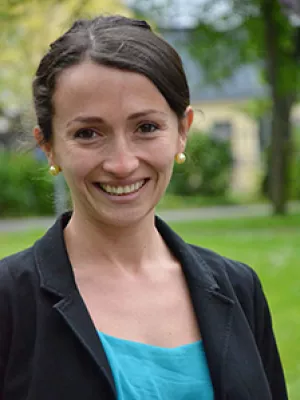
Ana Maria Vargas Falla
Director of first and second cycle studies

Getting a Spot on the Street: : Street Vendors’ Access to Public Space in Bogotá, Colombia.
Author
Summary, in English
Is it truly the "end" of public space? This handbook presents evidence that the answer is "no". In cities in different parts of the world, people still use public space to pursue activities of their choice.
The book is divided into seven sections. The first section presents three emerging types of public space. Each of the subsequent five sections focuses on a type of activity: recreation, commerce, protest, living and celebration. These sections are international in scope, presenting cases of activities in Brazil, China, Colombia, DR Congo, Egypt, Finland, Germany, Libya, Taiwan, Turkey and the U.S. The closing section, composed of three chapters, presents research methods for studying public space.
Graduate students, faculty members and researchers in social science, architecture, landscape architecture, geography and urban design will find the book useful for understanding, studying and designing urban public space.
This chapter:
Every day, thousands of individuals around the world sell products or services at affordable prices on streets, sidewalks, in bus stations and other public spaces. These spaces provide important opportunities for these people to earn a livelihood. Nevertheless, local governments argue that street vending should be eradicated in order to reduce disorder and control incursions into public space. This chapter explores how street vendors access public space through informal and formal means. Informal strategies to access public space are often based on social networks and quiet encroachment, while formal means include licenses to operate a business in vending zones or kiosks. This chapter draws on field observations and interviews (2012–2015) with itinerant street vendors and vendors participating in formalized programs of the local government in Bogotá, Colombia. From documenting how street vendors use public space, this chapter shows that there is a blurred line between formal and informal forms of use by street vendors. Using the concept of quiet encroachment of the ordinary, this chapter reveals street vendors’ strategies for accessing public space and maneuvering around police controls.
The book is divided into seven sections. The first section presents three emerging types of public space. Each of the subsequent five sections focuses on a type of activity: recreation, commerce, protest, living and celebration. These sections are international in scope, presenting cases of activities in Brazil, China, Colombia, DR Congo, Egypt, Finland, Germany, Libya, Taiwan, Turkey and the U.S. The closing section, composed of three chapters, presents research methods for studying public space.
Graduate students, faculty members and researchers in social science, architecture, landscape architecture, geography and urban design will find the book useful for understanding, studying and designing urban public space.
This chapter:
Every day, thousands of individuals around the world sell products or services at affordable prices on streets, sidewalks, in bus stations and other public spaces. These spaces provide important opportunities for these people to earn a livelihood. Nevertheless, local governments argue that street vending should be eradicated in order to reduce disorder and control incursions into public space. This chapter explores how street vendors access public space through informal and formal means. Informal strategies to access public space are often based on social networks and quiet encroachment, while formal means include licenses to operate a business in vending zones or kiosks. This chapter draws on field observations and interviews (2012–2015) with itinerant street vendors and vendors participating in formalized programs of the local government in Bogotá, Colombia. From documenting how street vendors use public space, this chapter shows that there is a blurred line between formal and informal forms of use by street vendors. Using the concept of quiet encroachment of the ordinary, this chapter reveals street vendors’ strategies for accessing public space and maneuvering around police controls.
Department/s
- LUCSUS (Lund University Centre for Sustainability Studies)
- Department of Sociology of Law
Publishing year
2023
Language
English
Publication/Series
Routledge Handbook of Urban Public Space, Use, Design, and Management
Links
Document type
Book chapter
Publisher
Routledge
Topic
- Law and Society
Status
Published
ISBN/ISSN/Other
- ISBN: 9780367611637